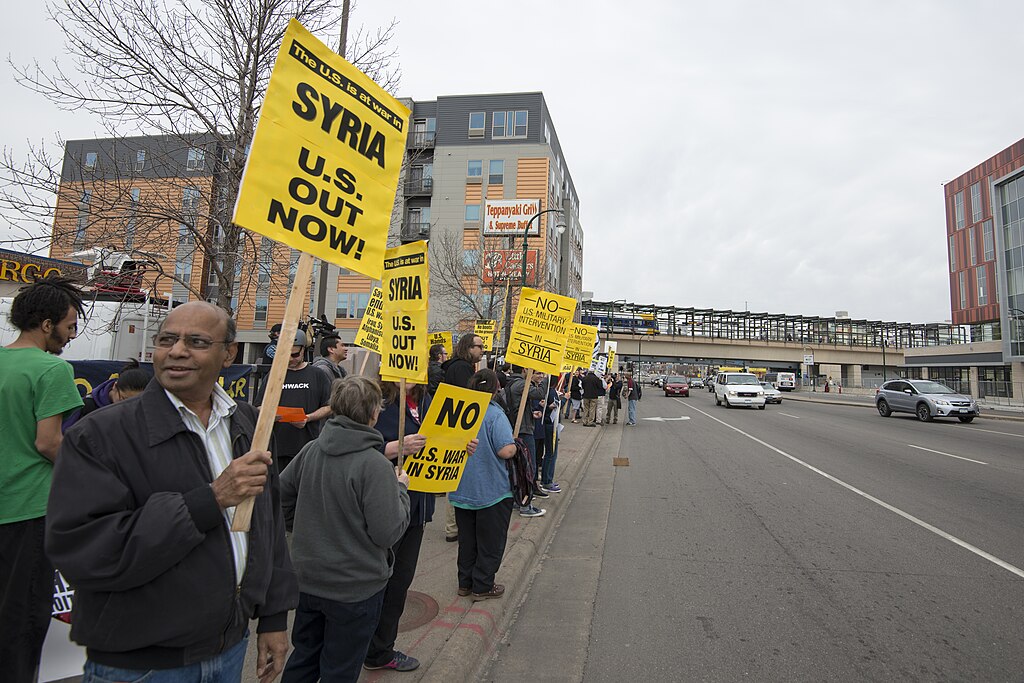Despite warnings from President-elect Donald Trump to stay out of Syria’s civil war, the US launched ‘dozens of precision airstrikes’ in the country on Sunday. The strikes, which targeted known ISIS camps and operatives in Central Syria, came after rebels ousted Bashar al-Assad, the nation’s despotic leader of nearly 24 years. The Pentagon stated that the operation’s objective was to prevent ISIS from capitalizing on the ensuing chaos and reorganizing after their failed statehood attempt in 2019.
The U.S. Central Command confirmed that the military struck 75 targets using war planes, including B-52s, F-15s, and A-10s. So far, there have been no indications of civilian life lost in these operations.
General Michael Erik Kurilla, while addressing the media, made it clear that the United States will not allow ISIS to benefit from the current situation in Syria. He warned all organizations in Syria of accountability if they support ISIS in any form.
These airstrikes come as a surprise after President-elect Donald Trump’s remarks on Saturday. Trump had urged the U.S. to abstain from getting involved in Syria’s civil war. He criticized previous administration’s handling of the Syrian conflict and suggested that the U.S. should stay out of it.
Opposition fighters in Syria, in an unprecedented move, have totally taken over numerous cities, in a highly coordinated offensive, and are now on the outskirts of Damascus, obviously preparing to make a very big move toward taking out Assad. Russia, because they are so tied up…
— Donald J. Trump (@realDonaldTrump) December 7, 2024
Following a successful rebel advance on Sunday, despotic leader Bashar al-Assad was overthrown after ruling over Syria for nearly 24 years. Opposition fighters managed to take over Aleppo and Damascus with little resistance and declared the country free from the ‘tyrant.’
It has been confirmed that al-Assad and his family have fled to Russia, an ally to the war-torn country. The news came from Russian state media initially but was later confirmed by Russia’s deputy defense minister Alexander Fomin.
Al-Assad reportedly left Syria early Sunday on a Russian plane while Syrians celebrated his downfall in their streets. The war between the Syrian government and various rebel groups has resulted in more than 507,000 deaths in over 13 years.
As Donald Trump prepares to take office, his approach to the ongoing U.S. military operations in Syria remains uncertain. He has yet to comment on recent events and how he plans to handle relations with Syria.
The overthrow of Bashar al-Assad, who ruled Syria with an iron hand for almost a quarter of a century, marks a significant turning point in the protracted Syrian conflict. The rapidity with which the rebel forces took control of key cities like Aleppo and Damascus demonstrates a shift in power dynamics that could have far-reaching implications for the region. However, it also opens up a power vacuum that groups like ISIS could potentially exploit, prompting the pre-emptive US airstrikes.
What’s particularly interesting about this situation is how it contrasts with President-elect Donald Trump’s recent remarks. His call for non-intervention in Syria’s civil war suggests a potential shift in U.S. foreign policy stance under his leadership. This could signal a departure from the more active military engagement seen under previous administrations.
However, the recent U.S. airstrikes indicate that on-ground realities might necessitate continued involvement in the Middle East. The primary goal is to prevent ISIS from regaining strength and exploiting the current political instability in Syria. This suggests that despite any proposed changes to foreign policy, the fight against terrorism remains a crucial concern for the U.S.
Furthermore, al-Assad’s escape to Russia reaffirms the close ties between Syria and Russia, a key player in the Syrian conflict. How this relationship evolves under a new Syrian leadership and how it affects Russia’s relations with other global powers, including the incoming Trump administration, will be worth watching.
The Syrian war has been one of the deadliest conflicts of recent times, with over half a million fatalities and countless more displaced or affected. The power transition in Syria may affect not just local dynamics but also international relations and global strategies against terrorism. As such, how President-elect Trump navigates this complex scenario will be crucial in shaping both his foreign policy legacy and the future stability of Syria.









